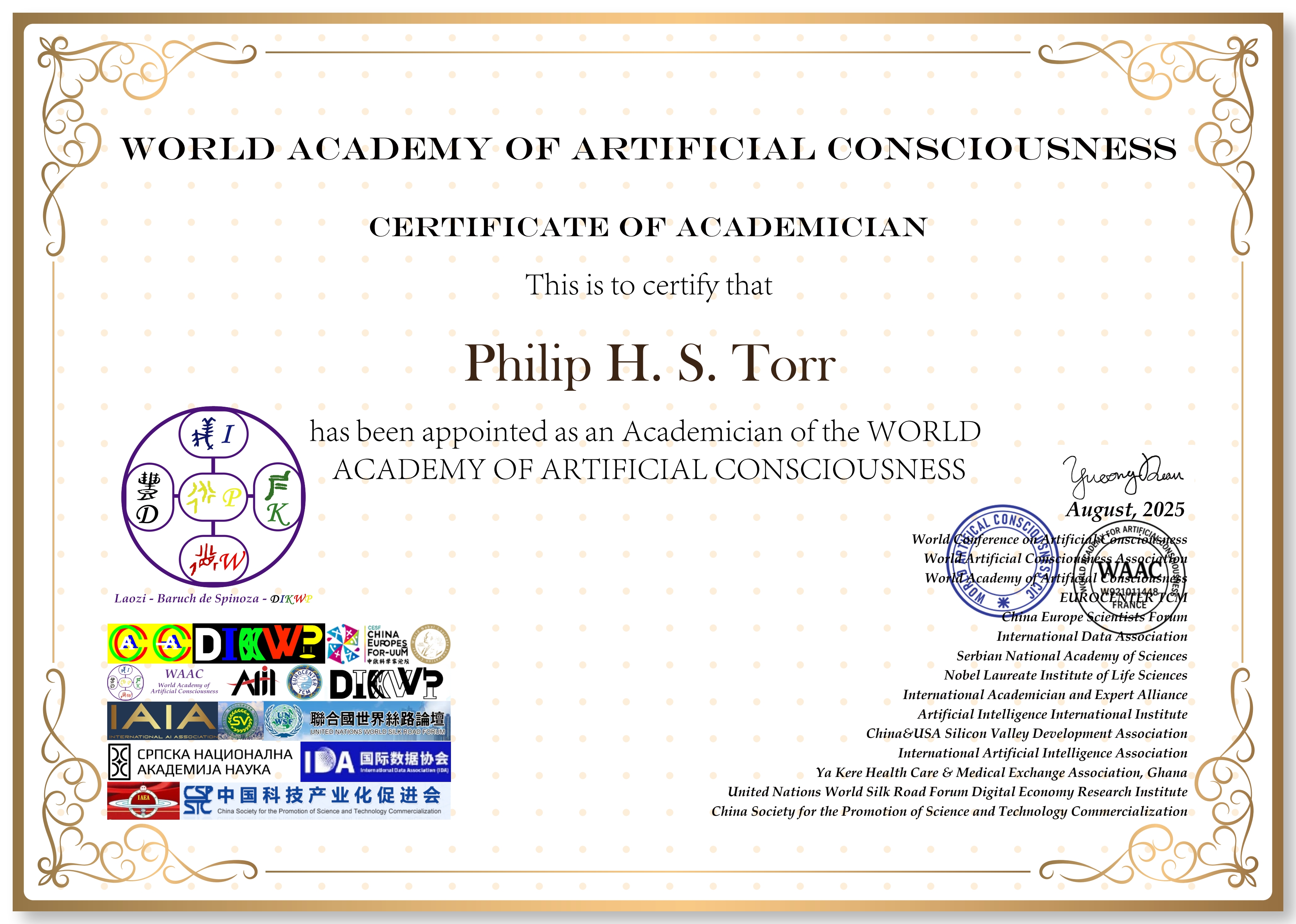
We are delighted to announce that Philip H. S. Torr (FREng, FRS), Professor in the Department of Engineering Science at the University of Oxford and Head of the Torr Vision Group (TVG), has been elected an Academician of the World Academy for Artificial Consciousness (WAAC) in recognition of his pioneering contributions to deep learning for scene understanding and recognition, visual object tracking and segmentation, and robust estimation and model selection.

Over the years, Professor Torr has followed a unifying trajectory “from robust geometry to end-to-end deep vision,” establishing a chain of results spanning modeling, learning, inference, and real-time applications: in Computer Vision and Image Understanding (2000), he proposed the MLESAC framework for robust estimation, markedly improving the noise tolerance of geometric model fitting; in the International Journal of Computer Vision (2002), he advanced Bayesian model estimation and selection (including the MAPSAC/GRIC line of ideas), laying the groundwork for automatic selection in multi-body/multi-model contexts; entering the deep-learning era, at ICCV (2015) he introduced CRF-RNN, integrating conditional random fields with convolutional networks in an end-to-end, backpropagatable architecture that significantly sharpened fine-grained boundaries for semantic segmentation; subsequently, at the ECCV Workshops (2016) he presented the fully convolutional Siamese network (SiamFC), bringing general object tracking into a real-time, end-to-end paradigm; at CVPR (2019), he and collaborators unified single-object tracking (SOT) and video object segmentation (VOS) in SiamMask, achieving real-time segmentation–tracking synergy at 55 FPS.
- Global Collaboration and Academic Ecosystem
Academicians of the World Academy for Artificial Consciousness hail from institutions such as Harvard University, the Massachusetts Institute of Technology, the University of Cambridge, the University of California, the French Academy of Sciences, the University of Padua, the University of Queensland, Columbia University, and the University of Exeter. Honorary Academicians come from a wide range of countries and regions, including the United States, the United Kingdom, France, Germany, Italy, Sweden, Canada, Australia, Spain, and China. In addition, leading scientists from prominent research institutes and technology companies—such as Google, the Allen Institute for Brain Science, and ZEEKR—also participate.
- About WAAC

The World Academy for Artificial Consciousness (https://www.waac.ac/) is a global academic institution established in Paris in 2025. Its mission is to advance frontier research and international collaboration in artificial consciousness through the integration of science, technology, and philosophy. The Academy publishes open research, policy recommendations, evaluation standards, and more. The current President is Academician Yucong Duan, and the Secretary-General is Dr. Yingbo Li. The Honorary Academician List: On May 3, 2025, WAAC released its first batch of Top 100 Honorary Academicians, recognizing scholars who have made foundational or leading contributions to the theory of artificial consciousness.
